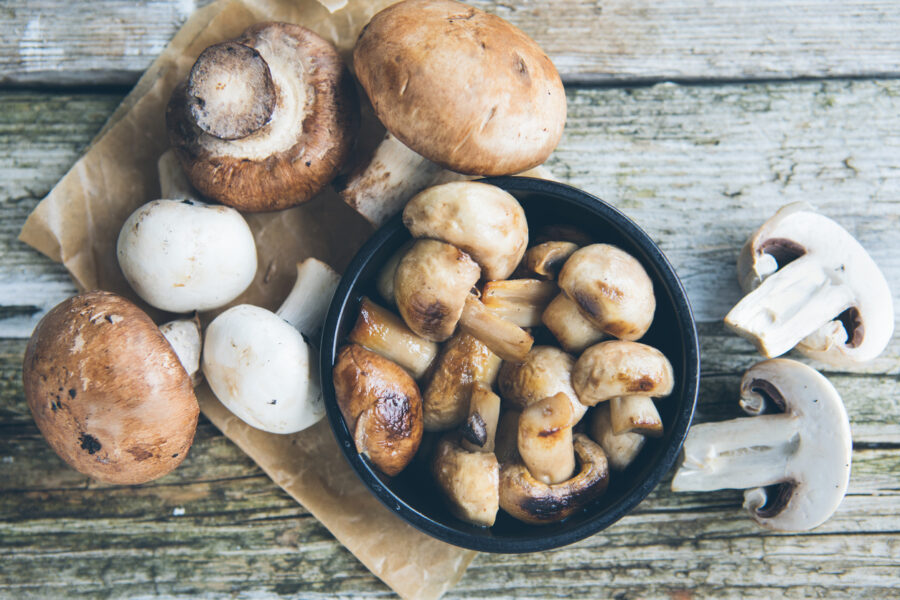Mushrooms were touted as one of the biggest wellness trends from 2021. But what’s so special about the common fungi? Platinum discovers more.
They can protect your brain
Mushrooms contain a high amount of two antioxidants — glutathione and ergothioneine. Antioxidants help protect the body against damage from free-radicals, making them an essential part of your diet. These particular antioxidants from mushrooms are thought to help to protect your brain from illnesses like Parkinson’s disease and Alzheimer’s — you won’t find many other foods with as high amount of them, per Penn State researchers.
Help maintain heart health
Studies have shown the enoki mushroom can help support some aspects of good heart health. In fact, some older studies have shown that the enoki mushroom extract could decrease blood pressure, triglyceride levels and even cholesterol. Whilst there’s still some work to be done to evaluate the studies, there’s no harm in adding mushrooms to your diet.
Could help the management of neurodegenerative conditions
Did you know that certain varieties of mushroom are referred to as ‘medicinal’, as they’re thought to hold healing properties? According to the National Library of Medicine, there is some evidence that items such as medicinal mushrooms can be beneficial in the treatment and management of neurodegenerative dishes. Mushrooms like reishi and lion’s mane are best taken as a powder or supplement, than eaten whole, for the best benefit.
Could you get your dose in coffee?
Forget going dairy-free — mushroom coffee is the latest cuppa replacement hitting the market. What’s more, it’s popular for good reason, touting benefits from cognitive support for memory and concentration, a rich source of selenium, zinc and magnesium as well as immune-enhancing properties.
Can support gut health
Did you know that the compounds in mushrooms, like beta glucan, appear to act as a prebiotic? This means they can fuel the growth of beneficial gut bacteria (bye bye to our morning Actimel), promoting a better gut environment. It’s been discovered gut bacteria can manufacture nearly 95% of the body’s serotonin, the feel good hormone, so eat up!








